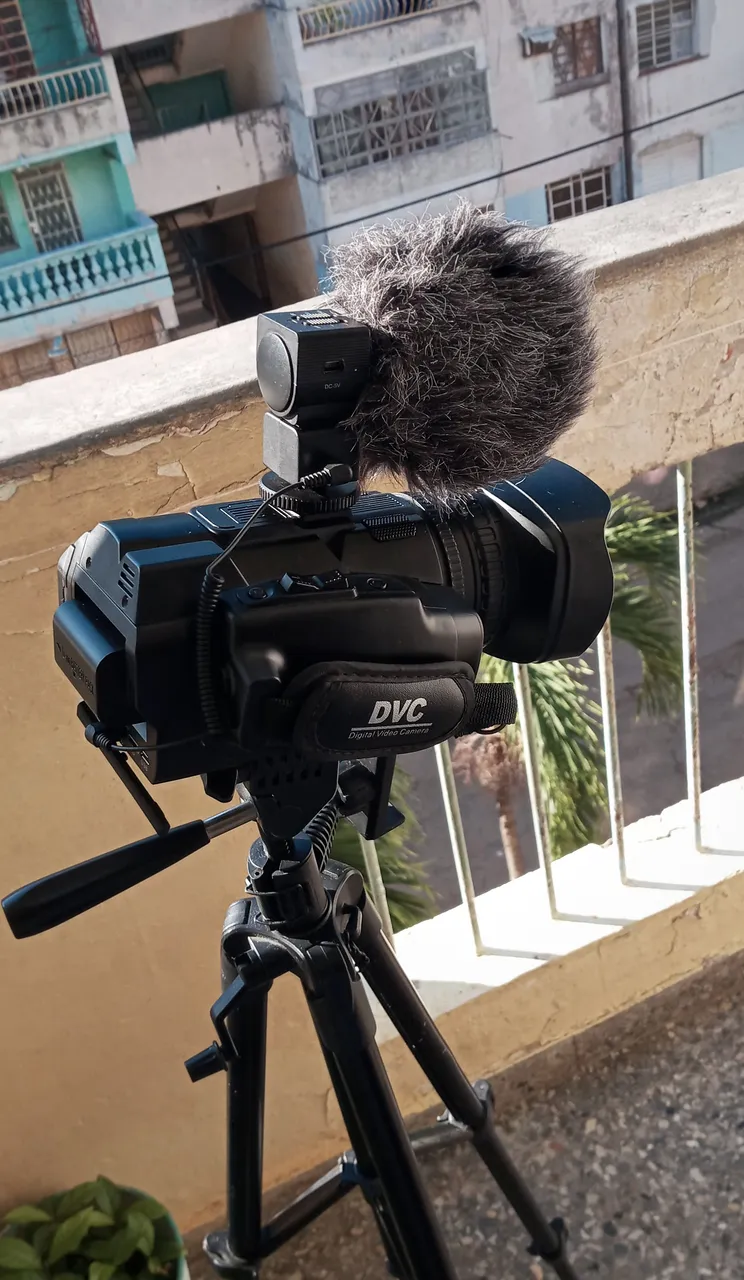
Foto de mi nueva cámara de filmación
Una cámara no es un celular. Me explico:
Decidí aprovechar mi día descanso, el domingo pasado, para hacer pruebas de cámara con esta joyita que me llegó recientemente. 😏
Así que me puse a filmar bajo condiciones diferentes de iluminación para ver cómo se reaccionaba.
Yo estoy acostumbrado a filmar con mi celular LG-K41, o sea:
➡ Abre la app de la cámara, toca el objetivo con los dedos y deja que ella sola enfoque y se adapte a las condiciones de luz.
➡ Bloquea la configuración para que no cambie y ponte a grabar libremente.
➡ Solo necesitas unos segundos para cambiar de opinión sobre la distancia, la orientación.
➡ Improvisar es parte del proceso.
Pero, al grabar con una cámara, esta metodología no tiene sentido. En cambio encontré que:
✅ Hay que evaluar los diferentes valores de exposición.
La cantidad de luz que permites que entre al lente afecta drásticamente la calidad de la imagen.
✅ Estas dos configuraciones parecen que entregan la misma calidad de imagen:
exposición: 0
Sensibilidad: 200
Exposición: 3
Sensibilidad: 200
No lo hacen. La manera en la que interpretan el contraste y el nivel de ruido es muy diferente.
✅ Resulta que tener una cámara sobre un trípode me obliga a pensar mucho más en la composición de mis tomas.
✅ Para el guión técnico de mis próximos videos, necesito un nuevo parámetro llamado: configuración de lente.
Una cámara no es un celular. Puede representar una desventaja si la utilizas con la misma mentalidad con la que grabas con este pequeño dispositivo.
"¡Estas imágenes son una mierda!" Puedes pensar.
No es así. Lo que es una mierda es:
🔸 tu interpretación del encuadre
🔸 tu concepto de la iluminación
🔸 la planificación de la toma
Una cámara no es un celular.
Y un realizador audiovisual no es lo mismo que alguien que alguien que saca su aparato del bolsillo, filma y se va.
Si quieres convertir tus ideas en contenido audiovisual que entretenga, eduque y venda, necesitas un profesional.
Conozco uno...
Impulso los contenidos de tu negocio utilizando técnicas y herramientas de producción audiovisual | Editor de Audio y Video para Podcasts y Redes Sociales | Escritor Online
ENGLISH
A camera is not a cell phone. Let me explain:
I decided to take advantage of my day off, last Sunday, to do some camera testing with this little gem that recently arrived to me. 😏
So I set out to shoot under different lighting conditions to see how it reacted.
I'm used to filming with my LG-K41 cell phone, and my workflow is like this:
➡ Open the camera app, touch the lens with your fingers and let it alone focus and adapt to the lighting conditions.
➡ Lock the settings so they don't change and start recording freely.
➡ You only need a few seconds to change your mind about distance, orientation.
➡ Improvising is part of the process.
But, when shooting with a camera, this methodology doesn't make sense. Instead I found that:
✅ You have to evaluate different exposure values.
The amount of light you allow into the lens drastically affects the quality of the image.
✅ These two settings seem to deliver the same image quality:
Exposure: 0
Sensitivity: 200
Exposure: 3
Sensitivity: 200
They don't. The way they interpret contrast and noise level is very different.
✅ It turns out that having a camera on a tripod forces me to think a lot more about the composition of my shots.
✅ For the technical script of my next videos, I need a new parameter called: lens settings.
A camera is not a cell phone. It can represent a disadvantage if you use it with the same mentality with which you shoot with this little device.
"These images are crap!" you may think.
They aren't. What sucks is:
🔸 your interpretation of the framing.
🔸 your concept of lighting.
🔸 your planning of the shot.
A camera is not a cell phone.
A filmmaker is not the same as someone who takes his phone out of his pocket, shoots and leaves.
If you want to turn your ideas into audiovisual content that entertains, educates and sells, you need a professional.
I know one...
I boost your business content using audiovisual production techniques and tools | Audio and Video Editor for Podcasts and Social Networks | Online Writer